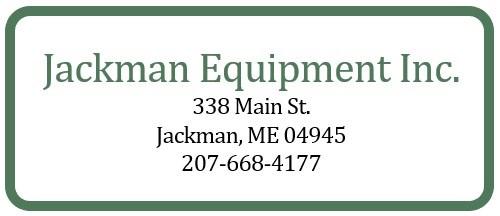
4 minute read
Trucking
Trucking Industry News...
New Canadian Vaccination Requirement for Truck Drivers Deadline Jan.
Advertisement
The Canadian government will begin requiring all truck drivers entering Canada to provide proof that they are fully vaccinated against COVID19 by Jan. 15 2022. To be considered fully vaccinated, a traveller must have received the full series of a vaccine – or combination of vaccines – accepted by the Government of Canada at least 14 days prior to entering Canada. To enter on Jan. 15 this effectively means a driver’s full series of shots must be completed no later than Jan. 1.
As many are aware, all exempt essential service providers including truck drivers are already required to identify their vaccination status in ArriveCAN, regardless of whether or not they are allowed to enter as unvaccinated. Until January 15, 2022, if an exempt essential traveller is not vaccinated, they will still be able to get an ArriveCAN receipt. After January 15, 2022, they must be fully vaccinated to get an ArriveCAN receipt. As of this date, most travellers who are currently exempt from quarantine will need to be fully vaccinated to enter Canada. They will also be required to upload their proof of vaccination in ArriveCAN. The full announcement on this change is available at: https://www.canada.ca/en/public-health/ news/2021/11/adjustments-to-canadas-border-andtravel-measures.html

Final Reminder: Mobile carriers are sunsetting 3G. Have you checked to see if your ELD is affected?
Mobile carriers are shutting down their 3G networks to make room for more advanced network services, including 5G. As a result, many older cell phones and other mobile devices will be unable to use data services. Once a 3G network is no longer supported, it is highly unlikely that any ELDs that rely on that network will be able to meet the minimum requirements established by the ELD Technical


Trucking

Specifications, including recording all required data elements and transferring ELD output files. Therefore, any ELD that requires 3G cellular connectivity to perform its functionality will no longer be in compliance with the technical specifications in the ELD rule after the 3G network it relies on is sunset. When in an area that does not support 3G, a 3G device will register a malfunction. In accordance with 49 CFR 395.34, the carrier has 8 days to get the malfunction resolved, in this case by replacement, unless an extension is granted. *The announced sunset dates are below. These are dates for completing the shutdowns. Mobile carriers are planning to retire parts of their networks sooner. -AT&T 3G: February 22, 2022 -Sprint 3G (T-Mobile): March 31, 2022 -Sprint LTE (T-Mobile): June 30, 2022 -T-Mobile 3G: July 1, 2022 -Verizon 3G: December 31, 2022 *Sunset dates are subject to change. Contact your mobile carrier for up-to-date information.

Trucking Continued Page 28



Trucking
Trucking Continued from Page 27
Hours Of Service Changes Clarified – Change Does Not Impact Maine 100 Air Mile Exemption…
The recent hours of service changes that were effective September 29, 2020 have caused a few questions including about the difference between the Maine 100 air mile rule and the new Federal 150 air mile rule. The recent changes do not in any way change Maine’s 100 air mile rule that has long been afforded to drivers and motor carriers who operate in Maine and within 100 air miles of their normal work reporting location. In short, the Maine 100 air mile rule exempts motor carriers and drivers that operate within 100 air miles of their normal work reporting location (and do not further interstate commerce) from hours of service and from the medical card requirements found in the Federal Motor Carrier Safety Regulations. These drivers may not drive when sick or fatigued, but are not required to keep a log book or ELD and do not require a medical card. This is due to the fact that Maine adopts the federal regulations with some state amendments, most notably in the area of hours of service and medical card requirements. To summarize, the recent changes to the hours of service regulations do not impact the Maine 100 air mile rule. A CDL driver that exceeds the 100-air mile radius in Intrastate commerce must either rely on the federal 150 air mile rule (“short haul” exemption) or must keep a log book or ELD. Additionally, drivers who exceed the 100 air miles in Intrastate commerce must have a valid medical card.

Check out the equipment and job opportunities our members have listed on the PLC website at the LOGGING ZONE!
If you have equipment for sale, are looking to buy, are looking for employees, or are looking for employment - check it out!







